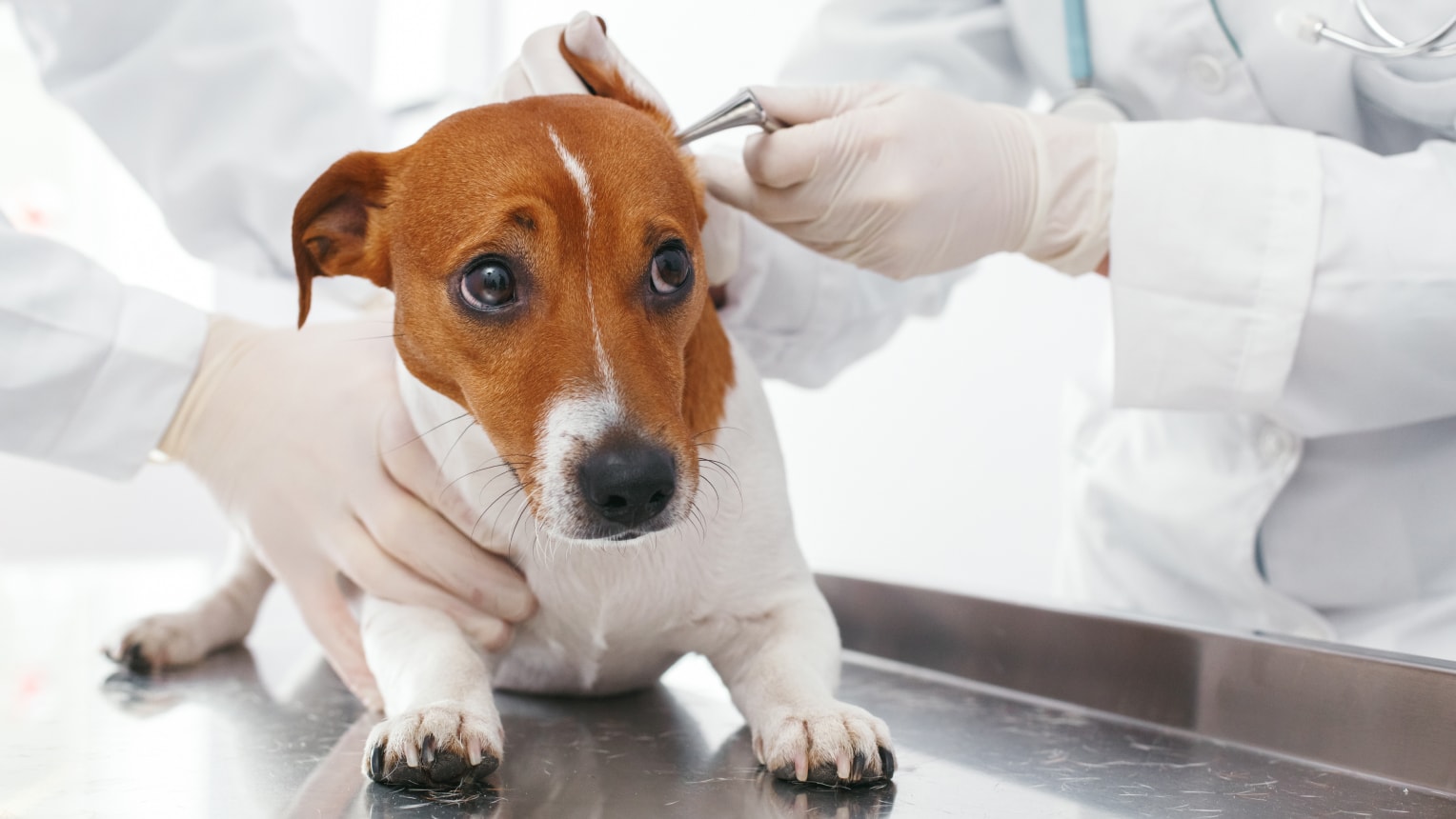8 ways to stop your dog being scared of the vet

Summary
The first time you expose your puppy to the vet, try to make it a positive experience for them.
Each time you visit the vet, it is important to start making positive associations from when you leave the house. And, training should always be practiced and reinforced at home.
Learn to recognise when your dog is feeling nervous, and try not to mollycoddle them, as this may make them more anxious. Instead, introduce commands your dog is familiar with and reward the good behaviour.
1. Make positive associations before your first appointment
Making the vets a positive experience as early as possible is key to stop your dog being scared of the vet.
Don't wait until you need to go to the vets to start positive associations! Take your pup to the vet before they have their first vaccination to get them used to the new sights, smells, and sounds.
Have the staff offer your puppy some tasty and healthy treats in return for calm behaviour. The next time your puppy comes back, they’ll be far more likely to remember their positive experience.
2. Start your training at home
You can even begin to create a positive experience for your pup at each vet visit before you even leave the house.
Begin with some simple commands and reward with a treat. Reinforce calm behaviours like ‘sit’ and ‘stay’ as you make your way to the vet.
This helps your puppy to expect good and nice things to happen at the vets, rather than something to be afraid of.
3. When in the surgery… act like a dog trainer!
When you’re in the vet surgery, remember your training! Continue to reinforce positive behaviour when you’re waiting in the lobby. Have the staff reward your pup for calm behaviour too, so they associate calm behaviour and veterinary staff with good things.
4. Practicing handling from a young age
Being handled by strangers is one of the reasons many dogs don't like the vets.
To help stop your dog being scared of the vet, practice having other people stroke and handle your puppy from a young age.
Again, have people reward them for calm behaviour as this is happening.
Your puppy should get very used to having other people touch them, so that they're not scared when suddenly handled by a vet. Be sure to continue this training on the vet table, too.
5. Learn to read your dog’s body language
Be very aware of behaviour that shows they aren't feeling good – backing away, putting ears back, nose licking, and showing the whites of their eyes are all signs of nervous behaviour, and may eventually lead to a growl or a bite if not taken seriously.
6. Try not to mollycoddle
If you notice that your pup is feeling nervous, take a few steps back from the situation. Reintroduce commands they are familiar with, rewarding with a treat that they like when they listen.
Whatever you do, try not to mollycoddle your puppy or show that you are nervous, too. This may only make their anxiety worse!
7. Reinforce good behaviour in many situations
Never forget to keep reinforcing good behaviour at home and at the vet throughout your dog’s life.
Always carry a few of their favourite treats when out and about to remind them of the behaviour you’d like him to do in all kinds of new and potentially strange situations.
8. And remember - stay calm!
Dogs are very good at picking up on our feelings. If you shout or become nervous yourself, or if you accidentally reward nervous behaviour by picking your dog up and cuddling them when they feels scared, you could inadvertently encourage anxiety.
Think like a dog trainer and keep your voice calm and low, remembering to issue command words your dog knows well and reward them accordingly.
Jump to
Making pet dental care easier with Luna

Making pet dental care easier with Luna
Blog
Napo & Tractive launch partnership offering pet parents free GPS and health devices

Napo & Tractive launch partnership offering pet parents free GPS and health devices
Blog
Why isn’t my cat using the litter tray?

Why isn’t my cat using the litter tray?
By Rachel Rodgers MSc, Head of Training at Napo Pet Insurance
Blog